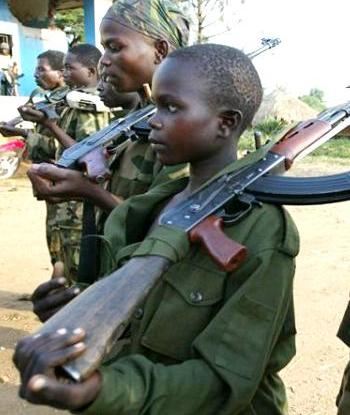In the recent years, the African continent had continued to increase their economic growth; “the declaration in Africa’s growth since 2010 has been concentrated in two groups of economies – oil exporters and northern countries still rebuilding after the political convulsions of the Arab Spring”(1). However, in big parts of the continent there is still a big gap between people with vast resources and other people with nothing at all. It slightly seems as in the problem would convey a political and economic stress as part of a lifetime of war and despair; although, in some respect, the poverty problem is most definitely a consequence of multiple years of political conflict, the recent problem points more towards a leadership issue that has grown from multiple years of foul social learning in the population. 
According to an article posted in the African Exponent website there are 7 reason which depict Africa as the poorest continent in the world. Amongst those reason, we can find issues like the terrorism problem still being faced in most African countries and the political corruption that involves it. Nevertheless, many people deviate from the social learning focus that has been instilled in the population from many years of depression and misery. Terrorism is one of the many roots that influences the population to acquire a negative type of social knowledge which increases the leadership and social problem.
So, what is social learning and how is this going to solve the poverty problem? To be direct, social learning is the power to influence a respective population via social interactions. Many young populations in Africa grow up learning from society and the terrorist agenda is not helping much. Many kids grow up losing their parents to terrorism acts and/or to political corruption and some of them are directly involved with these types of social problems from very young ages; this is what continues to add to the domino effe ct of troubled political and, ultimately, economic growth in the continent.
ct of troubled political and, ultimately, economic growth in the continent.
It is important to notice that the poverty problem is not going to get solved solely based on better social influence; however, it can play a major role in the economic rebuild of future generations. Despite the clear poverty issue, Africa has many markets in which the economic growth can rely on, such as oil output and diamond mining; nevertheless, corruption and political issues such as child labor limits their possibility for other world economies to invest in such economic initiatives with the fear of damaging their company reputation. At the same time, world economies would be more prone to enter the African markets and provide massive amounts of jobs for the population if they knew that political problems and terrorism would not interfere with their growing plans and reputation of their very respected businesses.
Resources
(1) Leke, A., Barton, D., M., & McKinsey. (2016, May 05). What’s the future of economic growth in Africa? Retrieved April 21, 2018, from https://www.weforum.org/agenda/2016/05/what-s-the-future-of-economic-growth-in-africa/
Murori, K. (2016, October 06). 7 Top Reasons Why Africa Is Still Poor, 2018. Retrieved April 21, 2018, from https://www.africanexponent.com/post/billions-lost-in-profits-by-foreign-companies-tax-evasion-1953
Paszek, J. (2015, November 17). Why The Starving Kids In Africa Excuse Is Bullshit. Retrieved April 21, 2018, from https://www.theodysseyonline.com/starving-kids-africa-excuse-bullshit

 well known for their Ramen noodles soups and the only eating utensils available are two chopsticks and the traditional Asiatic soup spoon. Although most Asian restaurants in the United States do serve the same type of customary setting at the table; my wife and I could not help to notice the evident sound of slurping of noodles. We, both, come from traditionally Hispanic cultures in which this gesture is considered disrespectful, especially when eating in public; nevertheless, our willingness to keep an open mind was able to get us passed the ethnocentric interpretation and it was very soon that we found ourselves undertaking the same doing. Now a days, we continue to be proud noodle slurping creatures; however, we have learned to understand our surroundings and know in which culture this might be accepted and might not; this way, we can always be sure to keep a professional look and not ruin our good reputation.
well known for their Ramen noodles soups and the only eating utensils available are two chopsticks and the traditional Asiatic soup spoon. Although most Asian restaurants in the United States do serve the same type of customary setting at the table; my wife and I could not help to notice the evident sound of slurping of noodles. We, both, come from traditionally Hispanic cultures in which this gesture is considered disrespectful, especially when eating in public; nevertheless, our willingness to keep an open mind was able to get us passed the ethnocentric interpretation and it was very soon that we found ourselves undertaking the same doing. Now a days, we continue to be proud noodle slurping creatures; however, we have learned to understand our surroundings and know in which culture this might be accepted and might not; this way, we can always be sure to keep a professional look and not ruin our good reputation.
